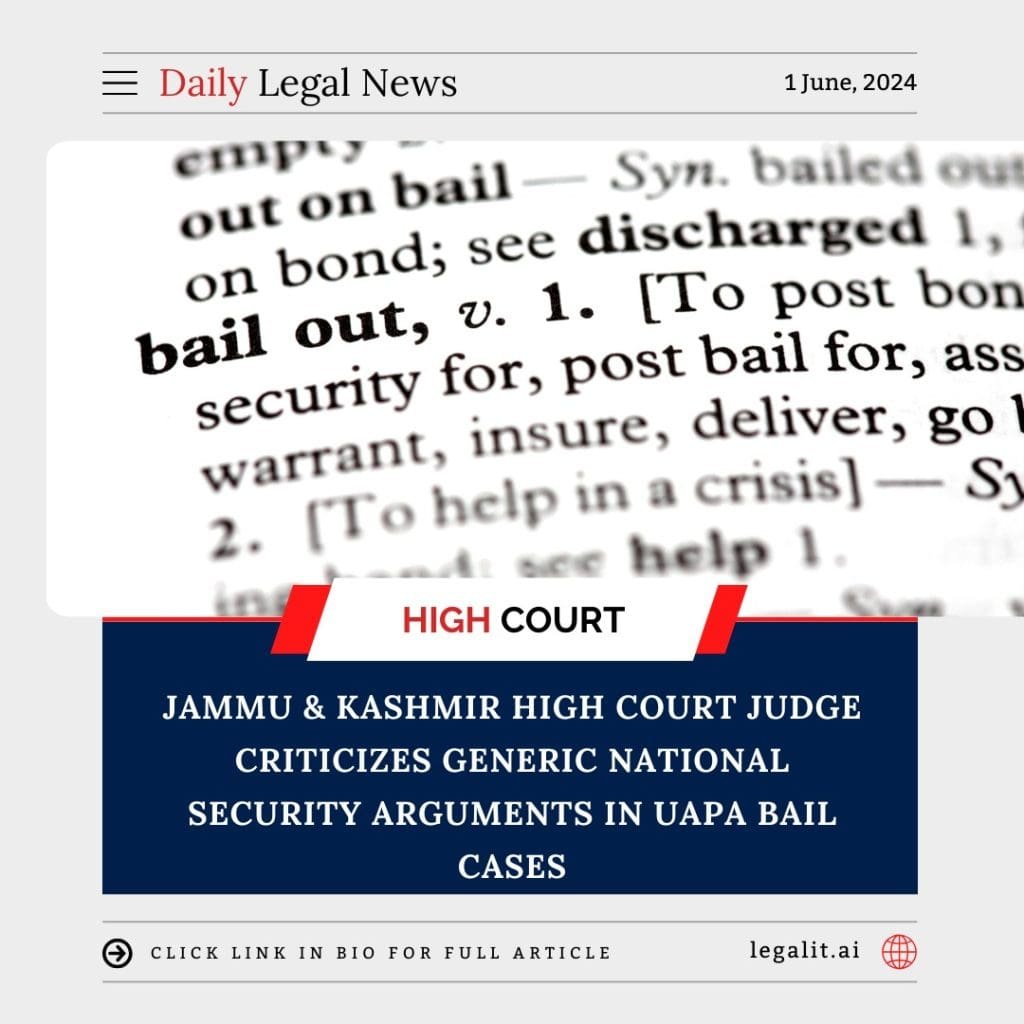
In a significant observation, a judge from the Jammu & Kashmir High Court has criticized the frequent use of generic “copy-paste” arguments invoking national security and references to Pakistan in bail applications under the Unlawful Activities (Prevention) Act (UAPA). This critique highlights the necessity for detailed, case-specific justifications in such sensitive legal matters.
Background of UAPA and National Security Concerns
The UAPA is a stringent anti-terrorism law aimed at preventing unlawful activities that threaten national security. Given its severe implications, bail applications under UAPA require rigorous scrutiny to ensure that genuine threats are not underestimated. However, the law also demands substantial evidence to prevent misuse or overreach.
The Judge’s Observations
The High Court judge pointed out that in many UAPA bail applications, the prosecution often resorts to generic arguments invoking national security and alleged links to Pakistan without providing specific evidence or details. This practice undermines the judicial process and fails to meet the stringent requirements needed to deny bail under UAPA. The judge emphasized that such repetitive arguments dilute the seriousness of genuine security concerns and risk unjustly infringing on individual rights.
Legal Implications
This observation serves as a critical reminder of the need for detailed and case-specific evidence in UAPA cases. The judiciary plays a crucial role in balancing national security interests with the protection of individual rights. By calling out these repetitive arguments, the court reinforces the principle that each case must be assessed on its own merits, with concrete evidence presented to justify the denial of bail.
Broader Impact
The judge’s comments could lead to more rigorous standards for the prosecution in UAPA cases, ensuring that national security arguments are used judiciously and substantiated with clear evidence. This could encourage a more meticulous approach in handling such cases, ultimately strengthening the credibility of the legal process.